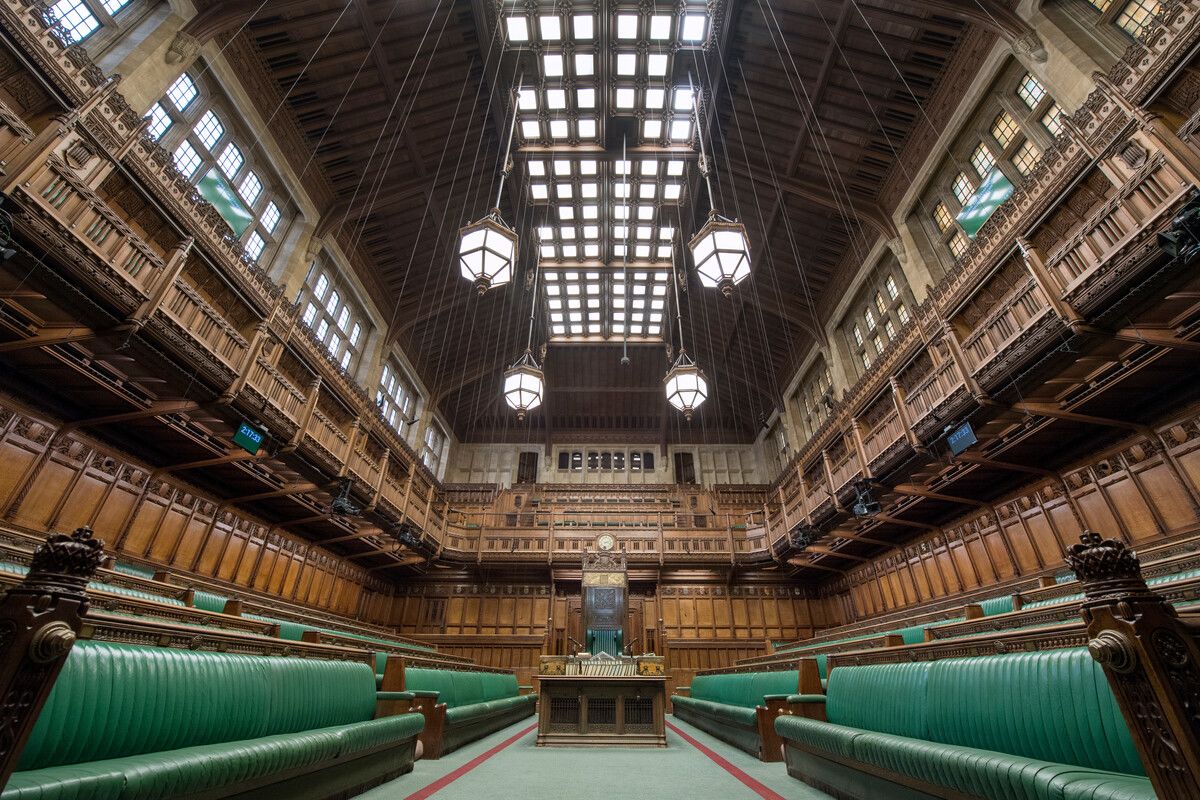What is the current condition of social housing in England?
Read a summary of our findings and our recommendations to the Government on how to improve the quality of social housing

We launched our inquiry into the regulation of social housing in November 2021, in light of a series of media reports revealing appalling levels of disrepair in some social housing, and of the measures announced by the Government to raise standards in the sector, in particular through the Social Housing (Regulation) Bill.
We wanted to engage with, and hear from, as many social housing tenants as possible. We invited two social housing tenants to speak to us in an oral evidence session, we run a survey that received 628 responses, and we visited two social housing sites holding a roundtable with tenants.
We are extremely grateful to everyone who took the time to speak to us, submit their views and share their experience. Their contributions have shaped the conclusions and recommendations that we have made to the Government in our report.
Read on to hear what we found.
What is the current standard of social housing in England?

During our inquiry we heard that some social housing has deteriorated to the point of being unfit for human habitation.
Angela Price, a social housing tenant who attended one of our oral evidence sessions, described to us the conditions of her home:
In their written submission, South West London Law Centre told us about Jo, who lives in a property owned by Croydon Council:
"Jo’s walls are covered in black mould with mushrooms growing in the corners of the rooms. [...]. All three family members have issues with breathing [...]. Their family GP has verified that their home is causing these issues."
Are the conditions we have been described representative of the sector?
According to the most recent English Housing Survey (EHS), homes in the social housing sector are usually of better conditions that those in other sectors. The most recent EHS estimated that 13% of homes in the social rented sector failed to meet the decent homes standard in 2020, compared to 21% in the private rented sector and 16% in the owner occupied sector.
During our inquiry we heard from a wide range of providers and tenant bodies. On levels of disrepair, we conclude that most social housing in England is of a decent standard, but that the condition of some homes has deteriorated so far as to be unfit for human habitation. We also note with concern the extremely serious impact on the mental and physical health of those affected.
What are main causes of housing disrepair?
From the evidence we received, it seems that one of the principal causes of housing disrepair is the age and design of the social housing stock, aggravated by the lack of funding for regeneration and the lack of new social housing.
We therefore call on the Government to introduce funding specifically for regeneration and to deliver on its commitment to increase the supply of homes for social rent.
The responsibility of providers
The social housing sector must still take much of the responsibility for the condition of some social housing, as it is clear that some providers have contributed to disrepair by managing their housing badly. In particular, too many are guilty of:
- not responding quickly enough to requests for repairs or investigating the structural causes of disrepair;
- preferring quick fixes over proper remediation work;
- neglecting sites earmarked for regeneration; and
- relying too heavily on tenants to report problems, rather than proactively monitoring the condition of their stock.
We call on the regulator, as part of its review of the consumer standards, to require providers to routinely audit the condition of their stock.
Treatment of tenants

In addition to complaining about the conditions of their homes, some tenants are also concerned about the quality of service they receive and how they are treated or spoken to by their provider. In many cases, we believe the poor treatment of tenants can be attributed, in particular, to:
- a lack of respect for tenants arising from a stigma attached to being a social housing tenant, or to other forms of discrimination;
- the power imbalance between providers and tenants; and
- the commercialisation of the sector, which has distanced some providers from their tenants and from their original social mission.
"What did I do to deserve being treated this way? [...]. Then you start looking at other factors that might not even be there: is it because of the colour of my skin, and things like that, are they presuming that I am from a lower class, so they think it's okay to treat me this way?"
To reduce stigma and discrimination, we call on providers to ensure their boards and senior management teams better reflect the diversity of their communities, and on the regulator to incorporate this requirement into its revised consumer standards.
Dealing with complaints

The Housing Ombudsman
The role of the ombudsman is to investigate and resolve disputes between tenants and providers who are members of the Housing Ombudsman Scheme, but the primary responsibility for resolving disputes lies with providers themselves.
Too often, however, providers' complaint handling processes are inefficient and obstructive, as we heard during one of our evidence sessions:
"They [complaints] seem designed to wear tenants down until they choose to live with a problem that requires repair rather than persisting in trying to get it solved."
As well as adding insult to injury, the inefficiency of some providers’ complaint handling processes is itself contributing to levels of disrepair, since repeated requests for repairs will nearly always also be complaints, and satisfactory resolution will usually involve the completion of remediation or repair work. We recommend that all providers that have not already done so immediately review and where necessary improve their complaint handling processes.
If, when it investigates a complaint, the ombudsman finds a provider guilty of maladministration, it may order the latter to compensate tenants for financial loss and avoidable inconvenience, distress and detriment. In 2020–21, the average level of compensation awarded was just £260. This clearly does not come anywhere close to reflecting the detriment to tenants. In its recent White Paper on reforming the private rented sector (PRS), the Government promised to establish a new ombudsman for the PRS with the power to award compensation of up to £25,000.
We call on the Government to amend the Social Housing (Regulation) Bill to also give the social housing ombudsman the power to award compensation up to £25,000.
The Regulator of Social Housing
The regulator regulates the quality of social housing through its consumer standards. Its regime is mainly based on two types of tests:
- the ‘serious detriment’ test, according to which it may only find a provider in breach of a consumer standard if the failure being investigated caused, or could cause, serious detriment to tenants. It is universally accepted that the ‘serious detriment’ test has prevented the regulator from properly regulating the consumer standards, and for this reason the Government is now legislating to repeal it, which we strongly welcome.
- the ‘systemic failure’ test, which is based on the regulator’s interpretation of its statutory duty. Under the ‘systemic failure’ test, the regulator only intervenes where there is evidence of systemic failure within the organisation concerned. This has resulted in providers that are responsible for serious mismanagement affecting dozens of tenants nonetheless being found compliant with the standards.
We call on the regulator to reconsider its interpretation of the duty to minimise interference and act proportionately, and to abandon the "systemic failure" test.
What happens next?

Our report "The regulation of social housing" was published on Wednesday 20 July 2022.
The Government has two months to respond.
The Levelling Up, Housing and Communities Committee scrutinises the policy, administration and spending of the Department for Levelling Up, Housing and Communities.
The updated membership of the Committee is available on the Committee's website.
